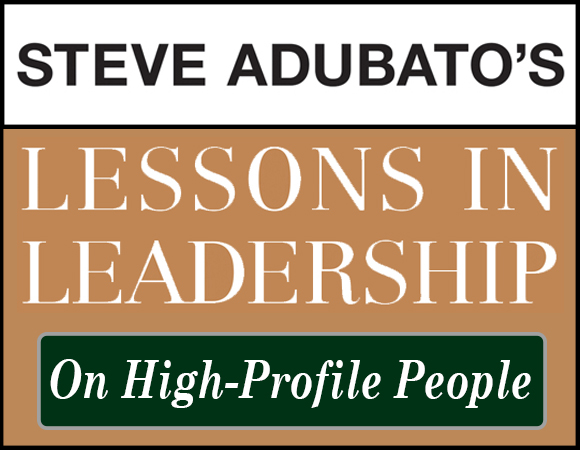by Steve Adubato, PhD
Robin Williams was an extraordinary performer, actor and comedian who made millions of people laugh and cry. But he was also the consummate extemporaneous communicator who had the rare ability to connect with his audience in a deeply personal and human way.
Simply put, he was a communication genius. So, as so many mourn his loss, and as I’ve watched endless video of his past interviews and performances, I keep thinking about what lessons the rest of us — mere mortals in the communication game — can take away from Robin Williams and others who are so good at extemporaneous communication. Here is what I’ve come up with:
--Great extemporaneous communication requires tremendous preparation. Sounds like a contradiction, right? But it’s not. The ability to react and respond to your audience and the things that happen around you while communicating in public requires that you know exactly what your message is and that you believe deeply in it. The more you believe passionately about what you are saying, the more confident you will be to veer off and share an anecdote while knowing that you can tie it to your original message or theme. This won’t happen if you simply get up and "speak off the cuff" or "wing it." That’s just lazy communication that usually misses the mark.
--Own your space and venue. When watching Robin Williams, you felt like he was playing a home game. He took over the space and made it his own. I watched him with Charlie Rose, my colleague on public television, in countless interviews and you can swear that Charlie had turned over the set to Robin Williams. Sure, it was Charlie’s show, but Robin owned the space. He felt comfortable and confident telling his stories, doing countless impressions, and engaging in streams of consciousness. No matter what Charlie asked him, Robin Williams was doing his thing. Now, I don’t recommend that the rest of us try to duplicate the performance of a comedic genius, but the larger lesson here is that the more you own your space and decide that you are going to tell your story, in your own way, regardless of what you are asked (while still being responsive) the more effective you will be in connecting with your audience. This is the essence of extemporaneous communication.
--Break the plane between you and your audience. Robin Williams would go right out into the audience and sit on someone’s lap or pull someone on stage to do an unplanned skit. I’m not advocating exactly that, but there is a lesson here. He broke the plane between presenter and audience. He made the audience active participants in the experience, which causes them to feel more engaged and involved. Suggestion: Ask an audience member to stand up and then ask them a question to get the conversation going around your message. That’s extemporaneous, but you also planned it. What is extemporaneous is what happens after the initial attempt because you can’t predict what happens after you break the plane.
The beauty of all this is that when one communicates in this fashion, it is no longer a linear, one-way, experience, which is predictable, flat and often boring. Rather, it becomes interactive, engaging and fun.
None of us will ever be Robin Williams when it comes to his genius as a communicator, but we can learn something of value about the basics of extemporaneous and truly interactive communication, which produces an awfully big payoff.
